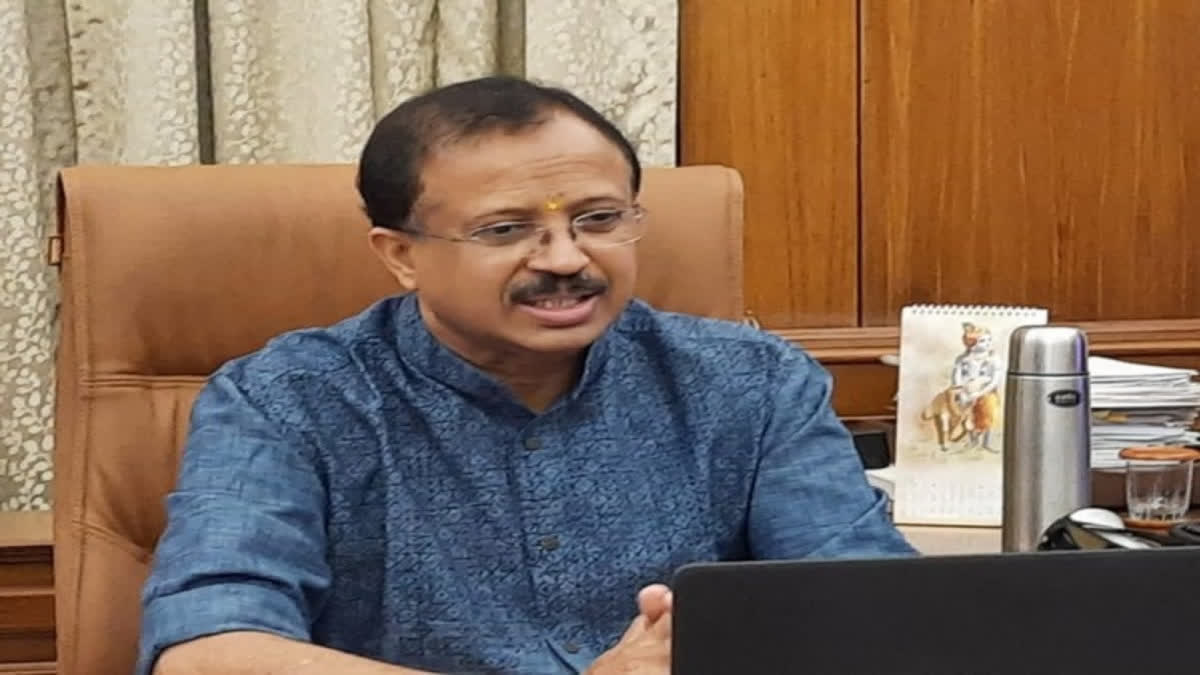New Delhi: The visit of Minister of State for External Affairs V Muraleedharan to Damascus earlier this week is being seen as a new beginning of India-Syria ties after the Arab Spring uprising. The Ministry of External Affairs (MEA) on Friday said, Muraleedharn, during the course of his visit on July 12-13, discussed ways to further strengthen bilateral ties, including development partnership assistance, education and capacity building.
“The Syrian leadership widely appreciated India’s humanitarian support to Syria in the hour of need, particularly in the aftermath of devastating earthquake in February 2023,” the MEA said in a statement. “MoS announced 300 new scholarships to Syrian students for studying in India. He also conveyed that a consignment of anti-cancer medicines will be supplied to Syria at an early date,” it added.
Also read: EAM Jaishankar meets counterparts from ASEAN grouping in Indonesia
India maintained its diplomatic presence in Syria throughout the civil war. The most recent instance of New Delhi supporting Damascus was after the earthquake that struck Syria and Turkey in February. As part of 'Operation Dost', following the earthquake on February 6, India sent six tons of emergency relief assistance on February 8. These included truck-loads of protective gear, emergency medications, ECG machines, and other medical supplies. More relief material, including gensets, solar lamps, emergency and critical care medicines, and disaster relief consumables, were sent a few days later.
“It is only appropriate that India reactivates its traditional friendly ties with Syria,” R. Dayakar, former Indian Ambassador to Iraq and Jordan, who also served in the West Asia desk of the Ministry of External Affairs, told ETV Bharat. “It was timely for India to send V Muraleedharan to Syria. This is the beginning of a new phase of India-Syria relations,” he added.
During the course of his visit, Muraleedharan met Syrian President Bashar al-Assad and Prime Minister Hussein Arnous and discussed ways to further strengthen bilateral ties.
According to the Syrian Arab News Agency (SANA), President Assad affirmed that heading east is one of the key principles on which the Syrian policy is based, not only in view of the economic or political relations, but also in view of the values and principles on which the East is based – the East which India is an essential part of.
According to the MEA statement, Muraleedharan also had a meeting with Fayssal Mekdad, Minister of Foreign Affairs and Expatriates of Syria, and held discussions on wide ranging matters of bilateral and multilateral matters. Mekdad had visited India in November last year. The Indian Minister also had a meeting with Hassan Al Ghabbash, Minister of Health of Syria, during which ways to strengthen health cooperation were discussed.
Muraleedharan’s visit came after the readmission of Syria to the Arab League in May this year. Syria was suspended from the Arab League in November 2011 following the Arab Spring uprising.
Also read: India, Maldives sign 10 MoUs related to development projects
However, India continued to maintain cordial relations with Syria all along. New Delhi took the stand that the civil war in Syria has to be resolved through a Syrian-led peace initiative and not through external intervention. Syria has also endorsed India’s position on Kashmir. According to Dayakar, there are enormous economic opportunities for India in the reconstruction efforts of war-torn Syria.
He said that the construction of an important dam with India’s aid got stalled. A line of credit (LoC) of $240 million was extended to Syria for part financing (52 percent) of the 400 MW Tishreen Thermal Power Plant Extension project costing $430 million. The Government of Syria is financing 48 percent of the project cost.
The project was halted force-majeure by India’s BHEL when the crisis began, leading to many corresponding issues of demurrage charges on the imported equipment, accumulated interest on outstanding payments. All such issues have been amicably sorted out and the Syrian request of restructuring of the LoC was acceded to by India during a series of meetings between officials of the two sides. BHEL is expected to resume the extension work soon.
“India can participate in sectors like health and IT too. The health sector suffered a lot during the war,” Dayakar said. He also said that India should start resuming supply of foodstuff like rice, coffee, tea and spices.
The reinvigorating of ties between New Delhi and Damascus will also help in India’s energy security. Syria is a key country in India’s focus on West Asia as an extended neighbourhood. More than two-thirds of India’s oil and gas imports originate from West Asia. "With ties between New Delhi and Damascus being reinvigorated, India can now go for oil exploration and drilling in Syria,” Dayakar signed off.



